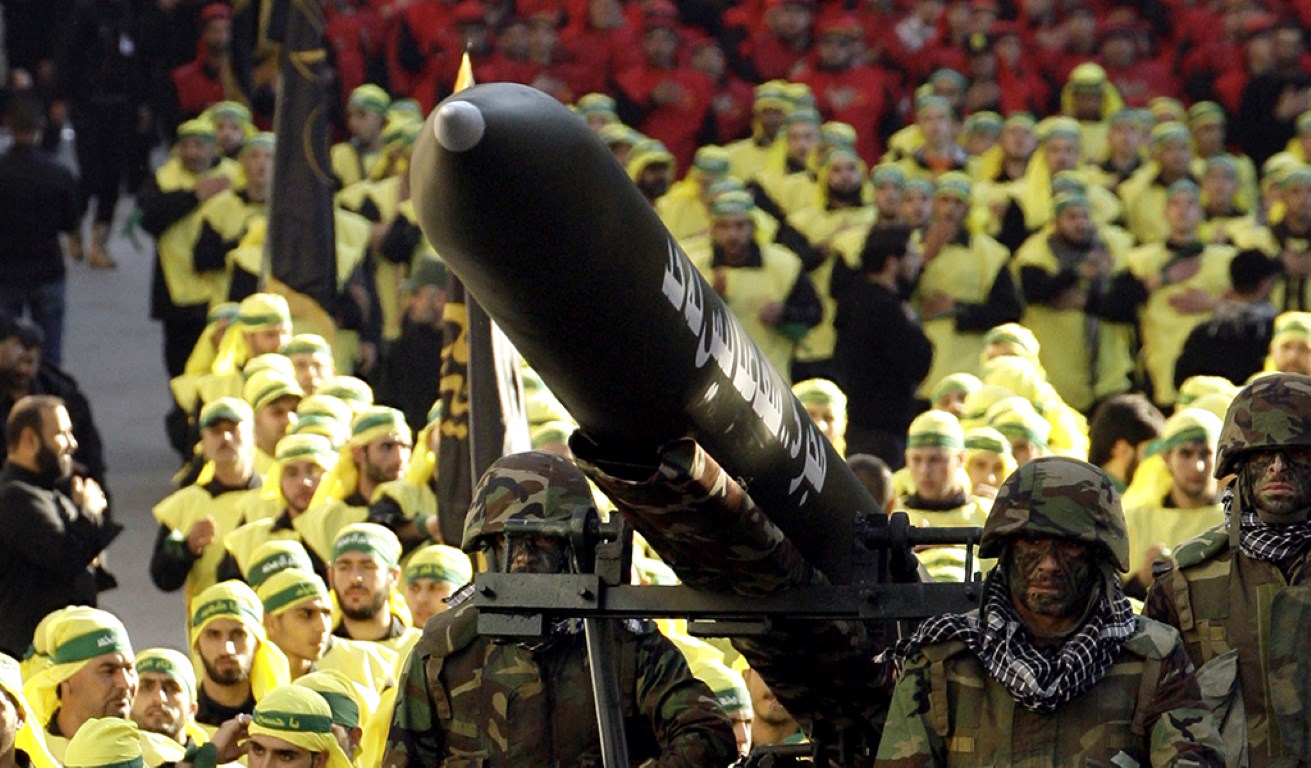Iran v. Israel: Changing Paradigms
July 25, 2018 | Expert Insights

The accuracy of an advanced missile arsenal and the ability to fire to fire a larger number of rockets in a day poses a credible threat to Israel in case of conflict with Iran-backed Hezbollah.
Background
Hezbollah is a Shiite Muslim political party in Lebanon. With significant support from Iran and Syria, Hezbollah maintains an extensive security apparatus, political organization, and social services network in Lebanon, where the group is often described as a "state within the state.”
Known as the Party of God, Hezbollah emerged during Lebanon’s fifteen-year-long civil war in the aftermath of Israel’s invasion in 1982 and subsequent occupation. Israel aimed to expel the PLO operating in southern Lebanon, but the move galvanized a faction of disenfranchised Shiites. Belief in the ‘Velayat-e faqih’ or guardianship of jurists (Shiite cleric should also serve as head of government) has created a strategic alliance between Iran and Hezbollah, with the former transferring arms and financial assistance to Hezbollah through Syria.
Hezbollah’s base is in Lebanon’s Shiite-dominated areas, including parts of Beirut, southern Lebanon, and the Bekaa Valley. Israel withdrew from Lebanon in 2000 after years of fighting Hezbollah guerrillas.
The group, headed by Secretary-General Hassan Nasrallah since 1992, is considered a terrorist organization by the governments of the US, Israel, Canada, Australia, EU and Gulf Cooperation Council. The Arab League condemned the primary party in Lebanon’s government as a terrorist organisation in 2017. However, they are widely supported within Lebanon, recently winning the first elections since 2006.
Read More On "A Win For Hezbollah?"
Analysis
Autonomy for Palestine has been under duress, as authority has been undermined, owing to military wings and corruption. Amidst the escalating war in the Gaza Strip, Syria’s aspiration to reclaim the Golan Heights and Israeli encroachment of Palestinian territory, is General Hassan Nasarallah of Hezbollah. With Iran’s influx of weapons and arms, Nasarallah and Hezbollah have been criticised for using Palestine as a pretext to assert Shiite Islamism in a predominantly Sunni Arab world.
Lebanon’s Hezbollah chief Nasarallah has said that arms of the resistance group are a means to protect the country from enemies. Hezbollah, trained by the Iranian Revolutionary Guard, has built a network of bunkers and tunnels near Lebanon’s southern border, trained thousands of committed fighters to battle Israel’s army and built up an arsenal of rockets capable of striking fear across the Jewish state. They have also backed Houthi rebels in Lebanon, sent battalions in support of Syria’s Assad and trained militias in Afghanistan. Yet, Hezbollah’s prowess would be nothing without Iran’s assistance.
For Iran, a Persian nation in a mostly Arab region, Hezbollah lends not just military prowess but also Arabic-speaking leaders and operatives who can work more easily in the Arab world. And for Hezbollah, the alliance means money for running an extensive social services network in Lebanon, with schools, hospitals and scout troops — as well as for weapons, technology and salaries for its tens of thousands of fighters.
Hezbollah, however, continues to push for an expansion of their rocket and missile stockpile, which already includes at least 100,000 rockets and missiles, 10 times the number the group had in 2006. These weapons possibly include the Iranian-made Fateh-110 missile, scud missiles, guided surface-to-air missiles that could target Israeli warplanes, and an increasingly sophisticated drone program. Iran has attempted to miniaturise missile GPS systems which could improve the accuracy of Hezbollah’s smaller missiles. Furthermore, Hezbollah has pioneered the use of cyber-operations as a tool of coercion over a decade ago and continues to use the Internet as a weapon today. In 2010, the Obama administration described Hezbollah as "the most technically capable terrorist group in the world."
At Israel’s northern border, the threat of a growing missile arsenal is secondary to the entirety of Hezbollah’s strategically organised and technologically adroit system of fighters. Thus, Israel’s threat lies not in Iran or Hezbollah as specific actors in the conflict, but instead their strategic alliance and fervent nationalism within a weak international policy framework for West Asian conflicts.
“The battle that begins in Lebanon doesn’t end in Lebanon. The battle in Lebanon, if Hezbollah wins, ends in The Hague. And the goal there is the systematic wearing away, erosion of our legitimacy. Our right to defend ourselves, and ultimately our right to exist,” Michael Oren, a former Israeli ambassador to the United States and current deputy minister said. “And I’ve got to tell you, honestly, they’re winning this war.”
Counterpoint
Israeli warplanes patrol the skies of Lebanon and Syria, working to destroy the launchers of the Fateh-110 and the long range unguided rockets. Hezbollah missiles could still bring the economy in Israel to a standstill and shut down Ben Gurion Airport, but they would not be accurate enough to destroy specific military targets.
Assessment
Our assessment is that Israel may be forced to target civilian areas where Hezbollah has positioned its rockets. Hezbollah has legitimised itself as a player in the conflicts of West Asia by rising within Lebanon’s administration. We believe that any such Israeli strike on civilian areas is likely to inflict a serious diplomatic blow on Israel.








Comments